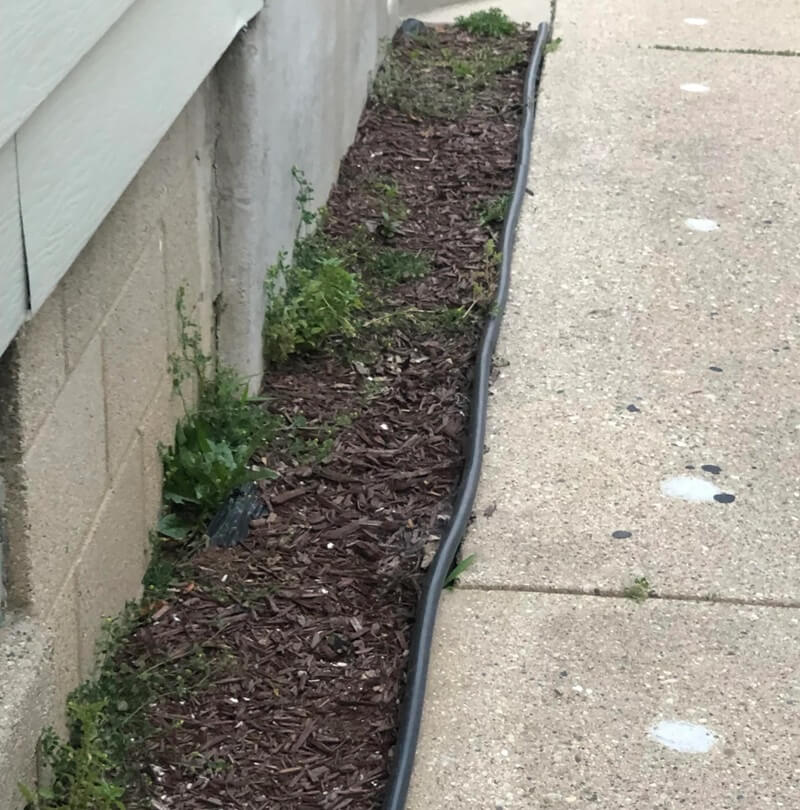When done properly, garden edging is not just beautiful but also practical. However, one Redditor questioned whether using plastic for the procedure was doing more harm than good.
"Is there any point to this plastic edging when the driveway creates a 'natural' edge?" the original poster asked in the subreddit r/landscaping. A photo shows a long plastic tube separating what appear to be wood mulch chips from a cement sidewalk.

The community chimed in with plenty of advice, with many commenters warning the OP against using this "pointless" technique.
"Lots of people use this edging in similar ways, but I hate it and almost never recommend it," one person said.
"The mulch isn't high enough that it would spill out onto the driveway," another person advised. "I personally hate this plastic edging and am working to replace it with stone and river rocks all around the house."
This method may seem like a low-fuss fix for landscaping woes, but most plastics are made from dirty fuels like motor oil and gasoline. Whether used in gardens, yards, or sent to landfills, plastics leach harmful chemicals into the environment as they slowly break down.
More than one home gardener has discovered that plastic edging can be more trouble than it's worth. Others have needed to remove pricey landscape fabrics, which contain plastic, because they were inhibiting the growth of their plants.
While natural materials like stone and river rocks are better options for garden edging, choosing native plants for your yard can also cut down on the need for trimming and lawn maintenance.
In addition to limiting erosion, per the U.S. Forest Service, native species don't require mowing, opening up time for other activities and reducing harmful air pollution from gas-powered lawn equipment. They need less water because they are suited to the environment, and they attract pollinators, like bees and butterflies, which support our food supply.
All in all, rewilded yards can save homeowners nearly $300 annually on water, fertilizers, pesticides, and weed control.
While a full yard makeover isn't an immediate option for everyone, clover, buffalo grass, and xeriscaping are other options that can be easily implemented in phases. They also have the benefit of being more visually appealing than plastic.
"Really makes things look cheap. Take it out," another commenter wrote of the plastic barrier.
Join our free newsletter for easy tips to save more, waste less, and help yourself while helping the planet.









